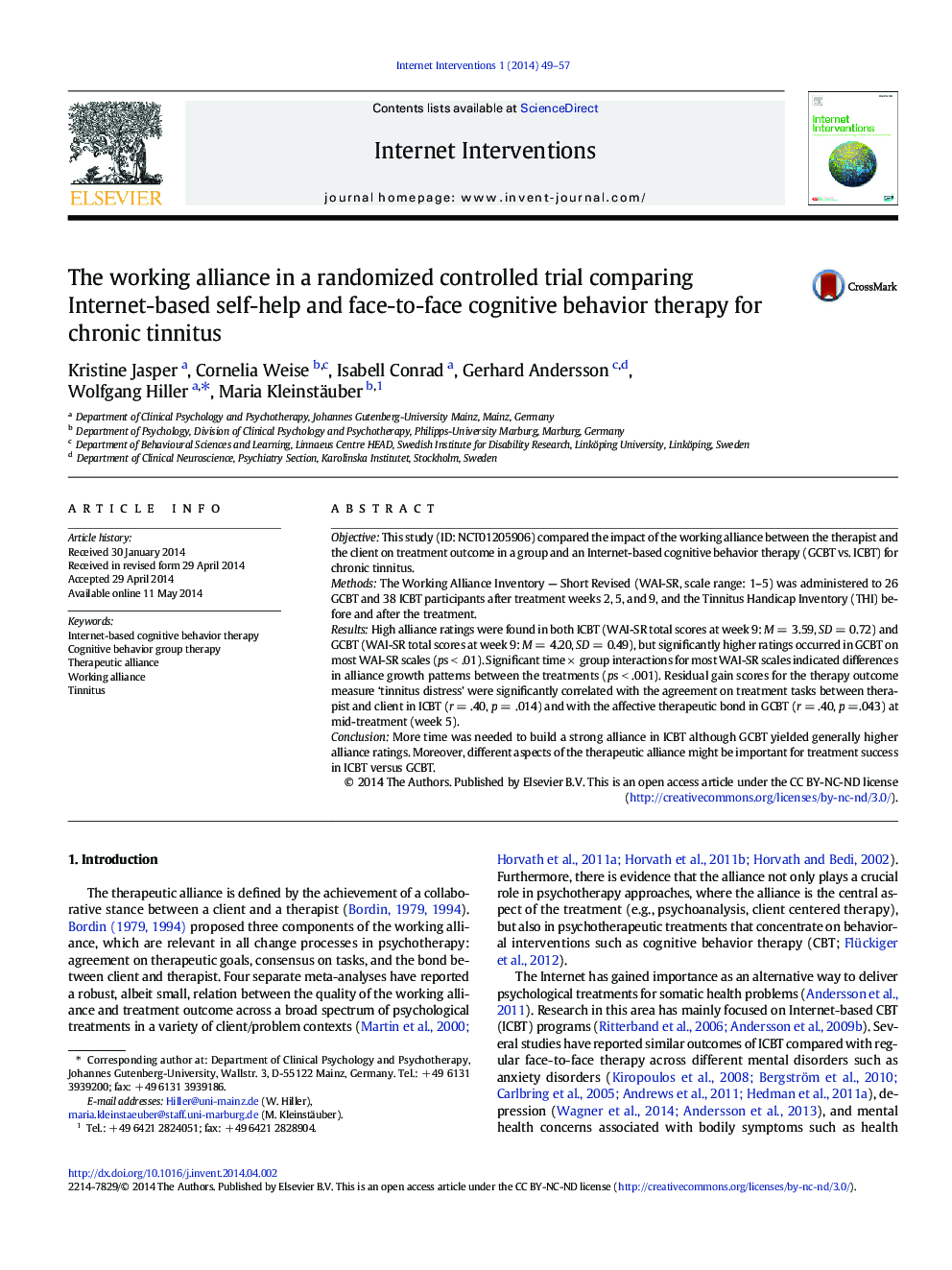| Article ID | Journal | Published Year | Pages | File Type |
|---|---|---|---|---|
| 557162 | Internet Interventions | 2014 | 9 Pages |
•More time was needed to build a strong alliance in ICBT in comparison to GCBT.•GCBT yielded generally higher alliance ratings.•Different facets of alliance were important for treatment success in ICBT and GCBT.
ObjectiveThis study (ID: NCT01205906) compared the impact of the working alliance between the therapist and the client on treatment outcome in a group and an Internet-based cognitive behavior therapy (GCBT vs. ICBT) for chronic tinnitus.MethodsThe Working Alliance Inventory — Short Revised (WAI-SR, scale range: 1–5) was administered to 26 GCBT and 38 ICBT participants after treatment weeks 2, 5, and 9, and the Tinnitus Handicap Inventory (THI) before and after the treatment.ResultsHigh alliance ratings were found in both ICBT (WAI-SR total scores at week 9: M = 3.59, SD = 0.72) and GCBT (WAI-SR total scores at week 9: M = 4.20, SD = 0.49), but significantly higher ratings occurred in GCBT on most WAI-SR scales (ps < .01). Significant time × group interactions for most WAI-SR scales indicated differences in alliance growth patterns between the treatments (ps < .001). Residual gain scores for the therapy outcome measure ‘tinnitus distress’ were significantly correlated with the agreement on treatment tasks between therapist and client in ICBT (r = .40, p = .014) and with the affective therapeutic bond in GCBT (r = .40, p = .043) at mid-treatment (week 5).ConclusionMore time was needed to build a strong alliance in ICBT although GCBT yielded generally higher alliance ratings. Moreover, different aspects of the therapeutic alliance might be important for treatment success in ICBT versus GCBT.
